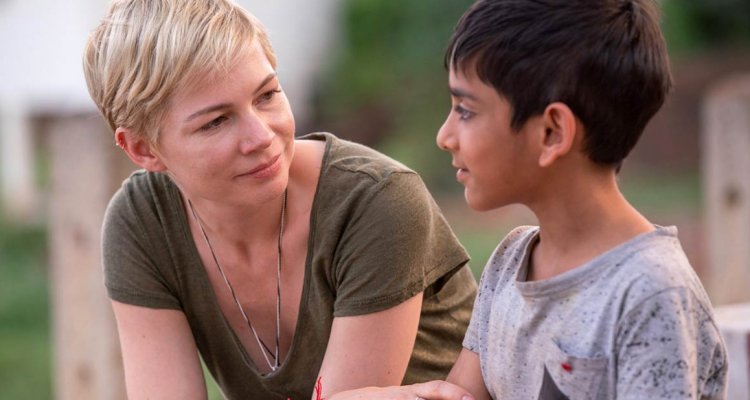Humans with a genuine sense of empathy—dwindling in this day and age, admittedly— all feel dire responsibility for someone at some point in our lives. We may have different ways of repenting if we fail that person, but what if more than just one person is relying on your care for them?
READ MORE: The Best Films Of 2019… So Far
Featuring the always-reliable acting talents of Julianne Moore and Michelle Williams, “After the Wedding,” is a textured family melodrama, paced a little too leisurely considering its vital urgency. Based on the 2006 Danish film of the same name, directed by Susanne Bier—nominated at the Academy Awards for Best Foreign Language film in 2007—the American remake bends the gender of the casting, the leads having been played by men, Mads Mikkelson and Rolf Lassgård in the original European version. Deft attention is paid to tidy filmmaking craft, and the performances are outstanding, but storytelling subtlety seems to have been utterly lost somewhere in the script’s translation process.
READ MORE: Summer Movie Preview: 35 Films You Shouldn’t Miss
Beginning with an elegant, swooping camera shot over India, after touching down the movie introduces Isabel (Williams), a humanitarian helping run an orphanage in Calcutta that is on the verge of bankruptcy. One of her associates, named Preena (Anjula Bedi) receives a letter from a potential benefactor that asks Isabel to travel to New York to meet the mysterious philanthropist. Isabel begrudgingly flies to the Big Apple for a meeting with the would-be donor, Theresa (Moore).
Clearly uncomfortable with the comforts of city life, and even more anxious inside a luxurious office building, Isabel meets Theresa in a skyscraper, realizing she is an insanely rich media mogul. Theresa expresses adamant interest in helping secure funds for malnourished kids, but her attention seems more focused on the lobster shortage at her daughter Grace’s (Abby Quinn) wedding. Isabel plans to fly back to Calcutta after the charity terms are settled, but Theresa insists that she stay the weekend and also attend the wedding ceremony. When Isabel arrives at the massive estate and she catches the eye of Theresa’s husband Oscar (Billy Crudup), she starts to suspect that her invitation wasn’t an accident.
Revealing more might send out a call to the spoiler police, but frankly, very little happens in “After the Wedding,” and the film is still dramatically draining. While the style of the movie is formally impressive, it grows tedious and dull. When important plot details finally surface at the after-party, the emotional stakes still seem disconnected, somehow. The aesthetic is so absent, it almost feels like the human side of the story was wholly abandoned in favor of the dour atmosphere.
Given the lengthy amount of time it takes for the real plot to kick-off, in many ways the movie reads like a deliberate bait and switch. Perhaps that idea worked in the original film, or on the page, but in practice, it makes for a frustrating experience. The opening drone shot of “After the Wedding,” implies a different kind of film than what follows. The languorous pace is irritating on its own; throw purposefully sluggish plot reveals into the equation and the creative decisions grow even more confusing. Thankfully, some solid acting payoff makes up for the film’s uneven screenplay and odd structure.
It is interesting to note that “After the Wedding,” is the second English language remake of an acclaimed European art-house picture that Moore has starred in this year (the superior film “Gloria Bell” is the first), but director Bart Freundlich’s redo — he’s married to Moore– is really a showcase for Michelle Williams. Towards the end of the film, Theresa becomes the main figure of focus, but for the first hour, the movie seems to take place from Isabel’s perspective, with Williams shouldering the great weight of her worldly responsibilities.
How do you live with yourself when you know, deep down, that you could have done so much more? Thousands of children die every day from preventable illnesses yet putting together a bit of funding for some vaccinations and school supplies would hardly even dent the wallets of countless who could afford to be more charitable. “After the Wedding” dives into sincere concerns and addresses some critical topics, but it is unfortunately bloated and often bland. Overall, despite a few profound explosions of emotion, the remake is more tonally overbearing than it is dramatically rewarding. [C]

